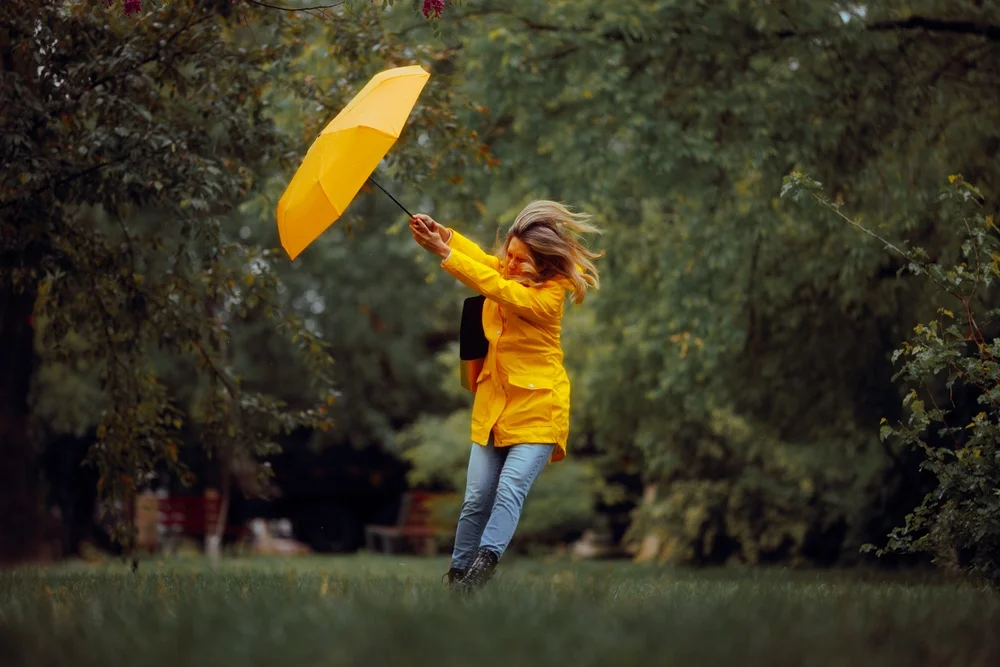
When we think of “natural disaster,” we often think of the raw and powerful force of nature: the wind, the rain, and the destruction. We consider the havoc, the fear, and the significant losses. But what happens when the storm stops? What about the events that are not captured in 24-hour news cycles?
In Kelsey Holden’s impressive book Saying Goodbye to Charlie, she gives us a different, more nuanced perspective on a story of quiet heroism, shared burden, and surprising ways in which a community can come together as they lose everything. Holden’s book is a rare and riveting example of how she has chosen to express her focus on fragility and small acts of kindness, those lifelines during a crisis. The chaos of a hurricane is one thing, but the aftermath is quite another. Everything we consider ordinary—the actions we complete without even thinking about it—becomes a laborious effort in a world where we are stripped of our conveniences. And in that world, we find our heroes.
Consider the scene where the group of colleagues is dropped off at 3 a.m. in the darkened parking lot. An “uneasy silence of exhaustion” looms, but what happens next is not every-man-for-himself. Our hero grips her flashlight and calls out, “Let’s find your cars, just stick close to me.” This is an unremarkable moment, but it has profound meaning as a moment of leadership and compassion. She is not concerned about herself; she is also taking on the burden of being the guide of her tired and shaken team. It is not a heroic act of saving lives; it is a quiet, selfless action that reminds everyone they are not alone. This is a powerful lesson and demonstration of what being a leader means when the formal trappings of society crumble over everything.
The book continues to bring to light the unsung heroes. We read about the people who worked in the Red Cross, “diligently delivered meals house to house, every day, rain or shine, for free.” The author reflects on how these people “met us with a smile and offered hope to each of us.” In a world where many people are struggling to get their needs met, sometimes a free meal with a smile can be monumental. The book also acknowledges the power company workers who worked “24 hours straight to restore power,” which was another wonderful example. Often overlooked within the narrative of disaster, it is normal people like these who work around the clock so we can rebuild. The dedication and acknowledgement sections of the book are not just formalities. They provide a very real tribute to the normal people who did extraordinary things.
An additional reminder of the community spirit we shared was at the mall, where the lines for ice and water were abounding. In any other circumstance, people would be honking in frustration and developing road rage for a forty-five-minute line of cars. But not here. Kelsey writes, “No one was impatient. No one honked.” The reason? Everyone was “just grateful to be here, grateful that help had come at all.” This shared experience of vulnerability and gratitude creates a palpable bond. It reminds us that tragedy can also elicit our best selves by overcoming our impatience and allowing us to focus on our shared humanity. The two men who worked so effortlessly to load her car, and the young soldier who said “Stay safe”; these are not just an interesting cast in a story; rather, we witnessed and received the kindness typically underlying the character of a community in distress.
The book digs deeper into the notion of navigating shared trauma as a family. When the main character, Kyra Hawley’s husband and son combine forces to uproot the palm from the guest room, the act is more than just physical labor together to restore their home, and in some cases, much of their lives. The time when they have their first meal together after the storm, which was a few burgers and grilled potatoes, is an important scene. It’s not a grand meal, but “at that moment it felt like a feast.” The simplicity of eating a meal together as a family amidst the wrecking is a moment of quiet victory. In the midst of loss, family and the simplicity of daily rituals can be powerful sources of strength. That exhaustion they felt was a shared load, and the moment the sleep “claimed us in an instant” was a shared load too.
Saying Goodbye to Charlie is a powerful reflection of the strength found in community and love in the wake of horrific loss. Kelsey Holden’s book is a testament to the human spirit’s tenacity. It’s a book that forces you to look beyond the headlines, to see the invisible. The neighbours, the aid workers, the family, who quietly hold human tragedy together for our sake, as we try to mourn storms past and begin the hard and necessary work of gang-planning a new future.